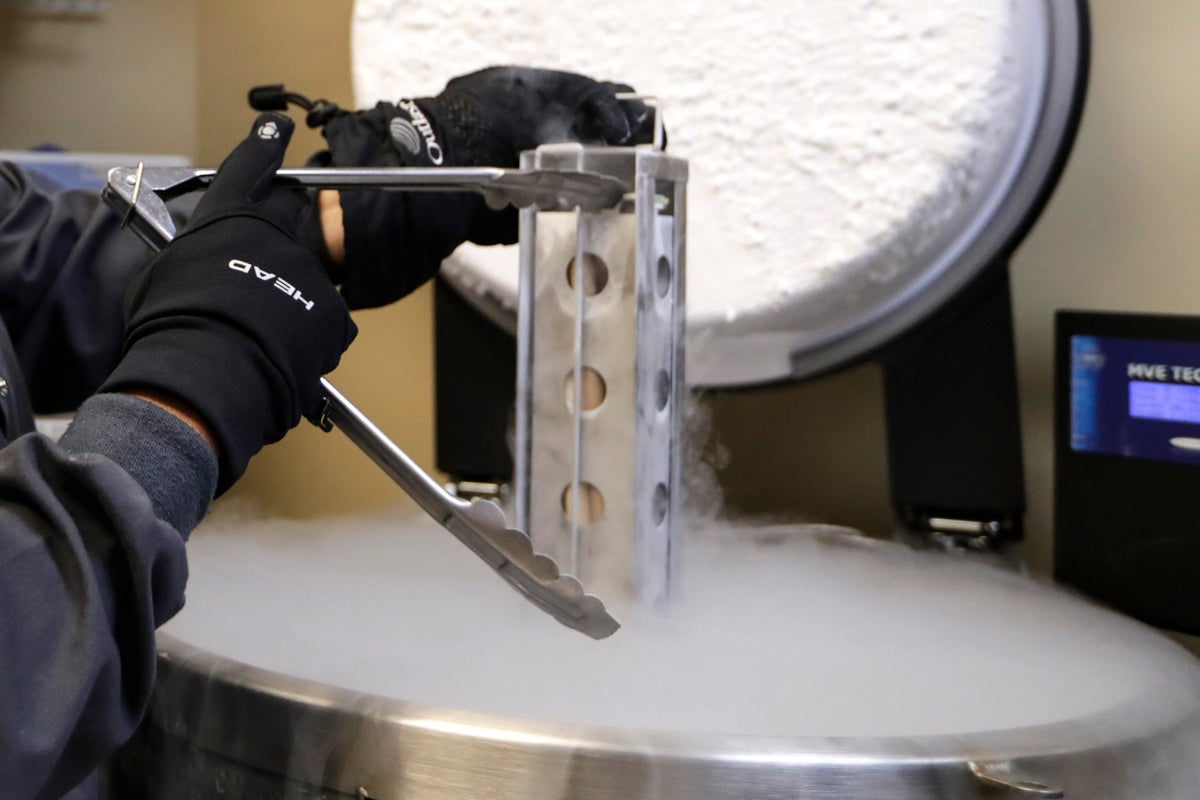
Support truly
independent journalism
The average age of first-time fertility treatment patients has risen to over 35 for the first time, according to new figures.
Research, by the Human Fertilisation & Embryology Authority (HFEA), shows the age has slowly climbed from 33 in 2000 to just over 35 in 2022.
But the likelihood of having a baby via fertility treatment quickly decreases as you get older, the fertility watchdog warned.
A lower proportion are receiving treatment funded by the NHS.
Julia Chain, chair of the HFEA, said: “IVF success rates continue to improve, but as the chance of a birth rapidly decreases with age, early access to fertility treatment is crucial for those who need it.
“Our data shows the average age of patients starting treatment for the first time is now nearly six years older than the average age at which women in England and Wales gave birth to their first child.
“There are several possible factors for this including the knock-on effect of delays across the NHS due to the Covid-19 pandemic, particularly in gynaecology, which has likely led to delays in some patients accessing fertility services.
“The higher average age may also relate to difficulty in funding fertility treatment, owing to recent increases in the cost of living, a fall in the proportion of NHS-funded IVF cycles and increased waiting times for further investigations before accessing NHS-funded treatment.”
Fertility treatment is not a guarantee of having a baby. It is important to seek advice about fertility issues so that, if treatment is needed, patients can access it as soon as possible to reduce delays.— Julia Chain
She added: “Fertility treatment is not a guarantee of having a baby. It is important to seek advice about fertility issues so that, if treatment is needed, patients can access it as soon as possible to reduce delays.”
She said contact with a GP and being referred to a fertility clinic, if necessary, will make sure the likelihood of success is as “high as possible”.
The study revealed there were 8,000 more IVF cycles across the UK in 2022 than in 2019 – a rise of 11 per cent.
NHS-funded IVF cycles plummeted to 27 per cent in 2022 – a substantial decline from 40 per cent in 2012.
The report shows around 52,500 patients had IVF treatment around the UK in 2022, a rise from 50,000 in 2019.
The Independent previously reported that women going through IVF became “highly anxious” after clinics closed in the spring of 2020 due to Covid, while IVF funded by the NHS plummeted by seven per cent during the pandemic.







